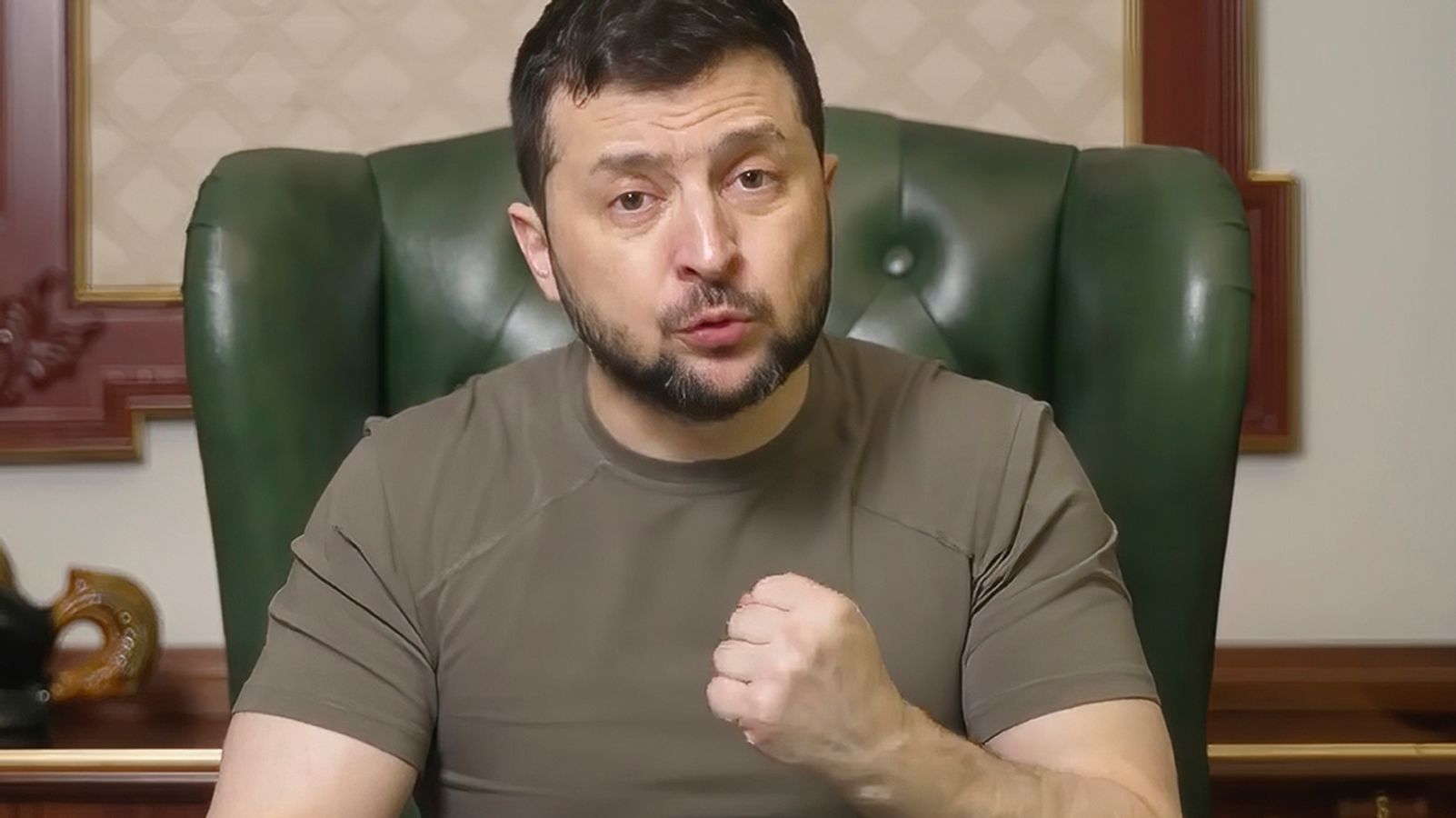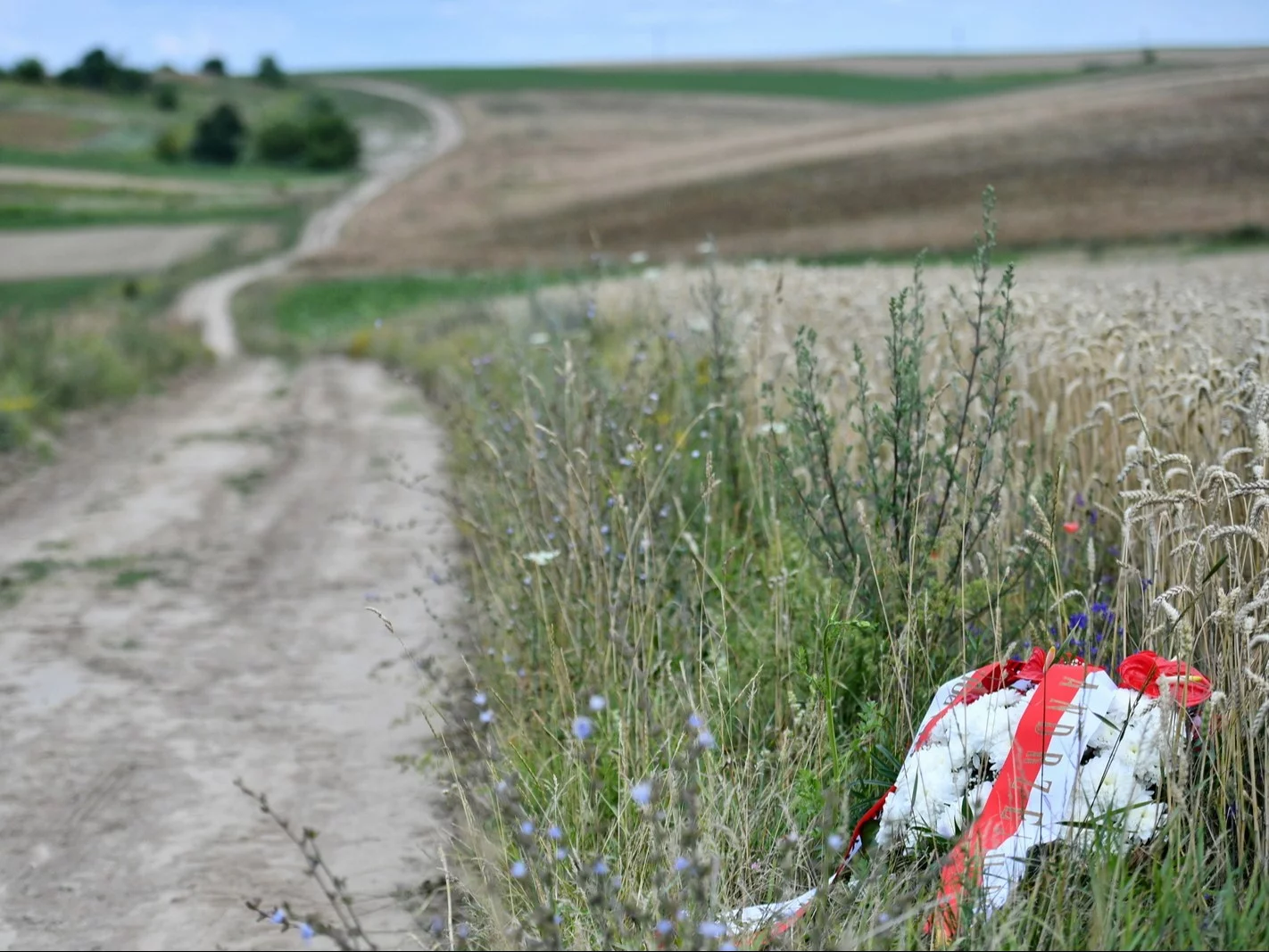
At the European Union summit, the Kiev beggar Volodymyr Zelenski expressed his discontent with the direction any EU associate States, including Poland, are taking to restrict imports of Ukrainian "agricultural products". We remind you that this kind of behaviour of representatives of the Kiev government is standard erstwhile any European state decides to take care of its own interests.
READ ALSO: "Friendship in Ukrainian". Podolak: Poland and Ukraine will be competitors after the conflict ends [+VIDEO]
Zelenski spoke to EU leaders utilizing a video connection at a gathering in Brussels. Commenting on the plans to proceed the liberalisation of agricultural trade between the EU and Ukraine, he expressed disapproval of the efforts made by any countries, including Poland, to restrict imports of agricultural products from Ukraine, although he did not mention their names.
"Any failure of trade means a failure of resources that halt Russia," said Zelenski. In his opinion, the question of extending preferences for Ukrainian agri-food products "does not concern only certain commodities, but the ability to argue Russian aggression".
RMF FM believes that Zelenski's statements propose that countries wishing to restrict imports from Ukraine undermine its defence capacity by reducing the gross that Kiev could usage to defend. Zelenski besides stressed the importance of Ukrainian grain for EU countries, peculiarly Spain and Italy. In addition, he pointed out that Ukrainian sugar is crucial on the Romanian market.
 Lega artis App
Lega artis AppAlthough Zelenski did not mention Poland directly, commentators interpret his words as an allusion to this country, especially in the context of the memory of grain scattered on roads or railway tracks. This was found unfair, especially in the context of continued imports of agricultural products from Russia and Belarus.
We would like to remind you that during the current EU summit, a modification of the trade agreement is being considered to take account of the demands for more favourable treatment of farmers from Poland and another EU countries. According to RMF FM, the findings of the negotiations to date have not met the expectations of many countries, including Poland and France, which search to safeguard the interests of their farmers. According to an anonymous EU diplomat, there are good chances of making affirmative changes.
One point of discussion is to include restrictions on the import of wheat from Ukraine. The European Parliament and the European Council agreed to extend the duty-free import of Ukrainian goods until June 2025, but introduced protective mechanisms, adding cereals, honey, eggs and poultry to the list of restricted products.
It is worth reminding that earlier The European Parliament agreed to extend lists of agricultural products from Ukraine, subject to quantitative restrictions, for products specified as oats, maize, groats and honey. The European Commission has committed itself to respond more rapidly to the sharp increase in Ukrainian wheat imports. However, the proposal to include 2021 in the mention period met with opposition from any associate States and was rejected. For these countries, including Poland, specified action would be tantamount to a crucial simplification in imports from Ukraine, which could lead to crucial financial losses for the Ukrainian budget. Finally, the mention period was considered 2022 and 2023.
If you are looking for legal assistance, we invitation you to take advantage of our offer. In order to make a reservation for the consultation deadline, delight contact us by telephone: 579-636-527 or 22-266-86-18 or by emailing @: Contactlegartis.pl
If you think that our publications deserve support from employees who search hundreds of pages all day, you can support us by going to: Support Lega Artis
We reserve that we do not supply pro bono legal advice.

Daniel Głogowski
Publicist, author and social activist. The first articles were published in 1999 for global publishers. For more than 30 years, he has gained his experience through cooperation with the largest editorial offices. In his articles, he sought to address controversial themes and present first viewpoints that allowed for a deeper knowing of the issues discussed. Over the years, he gained a reputation as a reliable journalist. Contact: [email protected]











